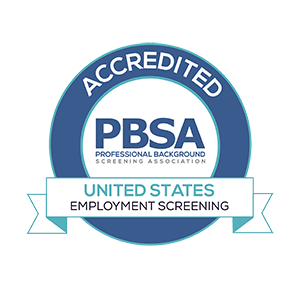Background checks are an invaluable tool for companies when it comes to hiring – they prevent unqualified or unsuitable candidates from filling positions, and protect businesses from accepting employees who may prove to be a liability. However, you can’t deny that the phrase “background check” does not necessarily have friendly connotations. A screening can be intimidating or nerve-wracking for the person receiving the background check, no matter if they actually have something to hide or not. Whether you are screening a potential candidate in the interview process or a current employee up for a promotion, there are a few things that you can do to lay some fears to rest and ensure that everything goes smoothly.
Make sure that you are communicating with your candidates about what the process of their background checks will be like. A common misconception among candidates undergoing a screening is that the purpose is to find some kind of “dirt” on them – for instance, an embarrassing photograph on a social media site, or a scathing ad hominem attack from an old coworker. While it is wise for job seekers and current employees to keep their social media sites clean, they should know that the main purpose of a background check is to confirm the credentials that they have provided and to make sure that they do not pose a potential risk to the company in any way. The main points that most background checks will touch upon is a person’s criminal history, their employment history, and their educational background. Let candidates know about any additional information that you might find relevant for their position as well, such as a credit check or their driving records.
An open approach to the background check will give candidates an opportunity to anticipate any issues that might turn up, and to come forward with the ability to explain whatever those issues might be. Encourage honesty above all else – for instance, many people believe that admitting to a criminal record automatically ensures that they will not be hired, when failing to disclose that information is more often cause to reject a candidate.
It’s also important to let your candidates know that they have the right to dispute or correct any information that turns up in their background check if they believe that it is inaccurate. If a piece of information from the screening is the reason that they are not going to be offered the position, they will not simply be dismissed by your company with no reason given.
The last key component to giving your candidates the best possible experience with a background check is to use a reliable provider for your screenings. TruDiligence has offered fast and accurate applicant screening services for the past 20 years, and continues to provide the best for their clients and their needs. For more information on our services, please contact us.


Leave a Reply
Want to join the discussion?Feel free to contribute!